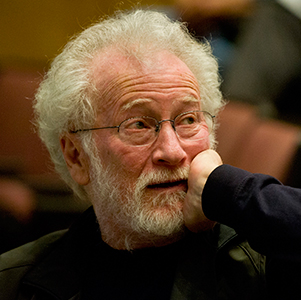Myths and Truths—How Drug Prices Are Set
Thoughts from GoldLab Foundation Founder Larry Gold
 I recently read the Forbes article “Four Reasons Drugs Are Expensive, Of Which Two Are False,” by my friend Jack Scannell, an academic neuroscientist who studies R&D productivity at the University of Edinburgh and the University of Oxford. I loved the article and have forwarded it to friends and colleagues.
I recently read the Forbes article “Four Reasons Drugs Are Expensive, Of Which Two Are False,” by my friend Jack Scannell, an academic neuroscientist who studies R&D productivity at the University of Edinburgh and the University of Oxford. I loved the article and have forwarded it to friends and colleagues.
I had a few instant reactions to the article, which I thought was completely sane and useful. Here they are. First, drug costs are “only” about 15 percent of the huge health care bill in the U.S., and thus our system needs something else. If drugs were free we would still pay twice what everyone else in the world spends per year per person on health care.
Second, the annual per capita gross domestic product (GDP) in the developed world is about $40,000, the same as the “allowed” cost per year in the UK for a quality-adjusted life year (QALY) gained from a drug. For sure Jack has the economic skills (I do not) to see if this coincidence is actually because allowed drug prices flow from something that is tied directly, but obscurely, to the per capita GDP. I bet they are connected in some simple way, even though we would hate to admit it.
Third, I loved the use of the word “disgusting” when Jack described how Pepsi and Coke used aspartame to affect the taste of their low calorie drinks.
Finally, I’m thrilled that during last year’s GoldLab Symposium (GLS) Jack was prompted by Danny Klein and Freke Vuijst to write something that would help explain this complicated and often misunderstood topic. It’s truly gratifying to see how conversations at the GLS spark action, articles, and forward thinking. That’s what it’s all about.
Larry Gold
Founder, GoldLab Foundation
Founder and Chairman of the Board, SomaLogic.
Meredith Graham, Executive Director of the GoldLab Foundation, also weighed in with her thoughts on Jack’s article and its relevance to current events
 You have probably been hearing about the drug Daraprim in the news in recent months. The marketing rights to Daraprim, a medication that is used by many AIDS and cancer patients, was purchased by Martin Shkreli’s company Turing Pharmaceuticals, in August 2015. Before the deal, Daraprim was sold for $13.50 per pill—after the deal, Turing jacked the price up to $750 per pill. Many have asked how Shkreli can get away with raising the price of a drug, which has been on the market for decades, over 5,000 percent? The backlash and criticism has been massive, and the issue of drug pricing has become a heated debate.
You have probably been hearing about the drug Daraprim in the news in recent months. The marketing rights to Daraprim, a medication that is used by many AIDS and cancer patients, was purchased by Martin Shkreli’s company Turing Pharmaceuticals, in August 2015. Before the deal, Daraprim was sold for $13.50 per pill—after the deal, Turing jacked the price up to $750 per pill. Many have asked how Shkreli can get away with raising the price of a drug, which has been on the market for decades, over 5,000 percent? The backlash and criticism has been massive, and the issue of drug pricing has become a heated debate.
Mr. Shkreli claimed the price increase was necessary. If you were as confused by the unapologetic CEO’s explanations as I was, then you will want to read Jack Scannel’s article, “Four Reasons Drugs Are Expensive, Of Which Two Are False.” Jack’s writing is straightforward, his explanation is easy to follow, and you’ll have a better understanding of drug pricing once you’re done. However, it will probably leave you with more questions about the validity of Shkreli’s defense.
It will be interesting to see if, and how, this issue will influence drug pricing in the future. This is obviously a complicated and important issue facing health care and patients around the world.
Meredith Graham
Executive Director, GoldLab Foundation
We’d love to hear your comments on Jack’s article, or thoughts about this issue. Please share below!
Leave a Reply Cancel reply
This site uses Akismet to reduce spam. Learn how your comment data is processed.
Navigate the Site
2025 GoldLab Symposium
Save the date!
Please join on May 15-16, 2025Presenters In The News
Contact Info











Share On